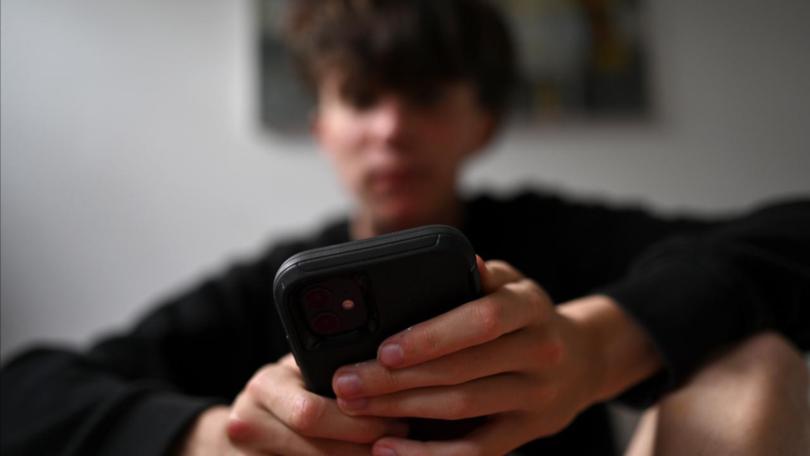Snapchat, Facebook, Discord among online platforms used to radicalise ‘sobering’ numbers of teens
The internet has made it easier for extremists to radicalise Australian teenagers with a 16-year-old using a forum to discuss carrying out a mass killing.

Some young Australians have advocated for race wars and planned school shootings after being radicalised online, and an international intelligence alliance warns teenagers across the world are being pushed towards violence.
A 16-year-old investigated by Australia’s Joint Counter-Terrorism Team had urged members of their extremist online community to prepare for a war to “defend the white race” and used their forum to discuss carrying out a mass killing offshore, live-streaming a shooting on Facebook and request bomb-making help.
The team also helped arrest a 14-year-old who adhered to nationalist and racist violent extremist ideology, expressing strong admiration for terrorists and posting related content on Snapchat before planning a school shooting.
Sign up to The Nightly's newsletters.
Get the first look at the digital newspaper, curated daily stories and breaking headlines delivered to your inbox.
By continuing you agree to our Terms and Privacy Policy.The two case studies were included in a report from Five Eyes countries — which includes Australia, the UK, the US, Canada and New Zealand — as their concerns over online youth radicalisation grow.
Every Australian terrorist attack, disruption and suspected terrorist incident in 2024 was perpetrated by a young person, Australian Security Intelligence Organisation (ASIO) director-general Mike Burgess said, and one in five priority counter-terrorism cases managed by ASIO involve young people.
“As a parent, the numbers are shocking; as an intelligence officer, the numbers are sobering,” he said.
Extremists are using seemingly innocuous online spaces including gaming platforms like Roblox and Discord, or social media sites to approach young people before pushing them down a pipeline of violence.
Teenagers are particularly vulnerable to online radicalisation, especially those who are socially isolated as the online world can be their key source of community, the report found.
The 16-year-old, for example, had very few real-world relationships and did not participate in any extra-curricular activities.
The internet also allows minors to interact with adults and others their age to share extremist content and normalise violent behaviour.
However, law enforcement agencies across the world are having issues addressing internet radicalisation as online environments often provide anonymity to users and engaging with minors can be more complex than engaging with adults.
As a result, all Five-Eyes nations have similar stories to tell.
In Canada, a minor who had promoted involuntary celibate (also known as incel) ideology online had threatened to hurt a female student at their school after having violent fixations and fantasies towards them.
Following work with the local authorities, he has denounced his former radical misogynist lifestyle and continues to co-operate with police.
Young people in the UK and New Zealand also engaged with racist, extremist social media groups online, while an American 14-year-old had made an improvised explosive device and disseminated instructions for others to use.
The pervasiveness of this radicalisation makes it hard to tackle the issue and the Five Eyes law enforcement have called for a whole-of-society approach.
“Parents, teachers, health professionals and frontline workers need to understand and identify the early signs of radicalisation,” Mr Burgess said.
“Once ASIO and the AFP get involved, it is usually too late - the young person is already in a dark and dangerous place.”
Early intervention programs or support services like mental health providers can help, but the Australian Federal Police are also trying to limit access to violent, extremist material and promote education and awareness to improve prevention.
